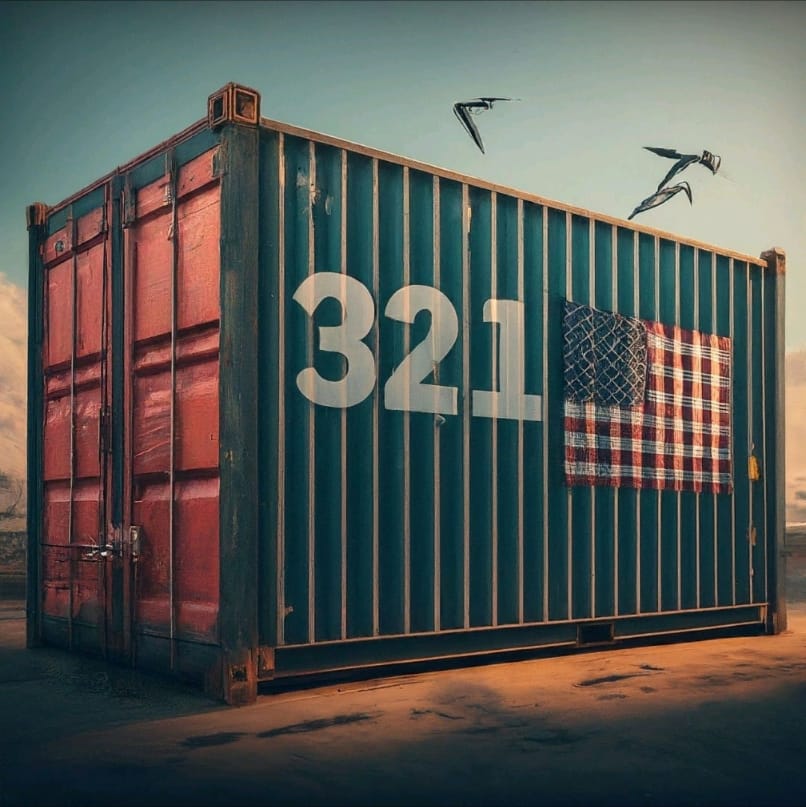The Future of Duty-Free Imports Under Section 321: An In-Depth Look

Introduction
In the ever-evolving landscape of global trade, Section 321 duty-free imports have become a critical component for e-commerce giants and consumers alike. With recent headlines focusing on companies like Shein and Temu, it's important to delve into the history and future implications of the de minimis value increase from $20 to $800. This change, heavily influenced by lobbying from major players like Amazon, continues to shape the e-commerce ecosystem.
The Role of Amazon in De Minimis Value Increase
The de minimis value increase to $800, which allows shipments below this threshold to enter the U.S. duty-free, was significantly supported by Amazon. Jeff Ferry, Chief Economist at the Coalition for a Prosperous America, highlighted Amazon's strategic use of the de minimis rule. By shipping products from China to warehouses near the U.S. border and then importing them duty-free when customers place orders, Amazon has optimized this provision to dominate the marketplace.
"Amazon pioneered a business model that leverages the de minimis rule by shipping products from China to warehouses just outside the U.S., then importing these goods tariff-free as soon as a customer places an order" - Jeff Ferry
This strategy has been highly effective, with nearly two-thirds of new sellers on Amazon's platform in 2021 being based in China.
Amazon's Strategic Moves
Currently, Amazon is reportedly preparing to launch its competitor to Shein and Temu, reinforcing its commitment to direct imports from China. Given that 63% of Amazon’s third-party sellers are China-based merchants, this move is unsurprising
Expanding Section 321 to Foreign Trade Zones
A significant development on the horizon is the lobbying effort to incorporate Section 321 into Foreign Trade Zones (FTZs) within the U.S. If successful, this initiative could eliminate the need for nearshore fulfillment centers, streamlining operations and creating significant opportunities for U.S.-based third-party logistics providers (3PLs).
The Broader Impact of Section 321
It's crucial to recognize that a wide range of products benefit from the de minimis rule, not just fast fashion items from Shein and Temu. Everything from tires and tools and home goods from major brands enters the U.S. under this provision. Interestingly, TikTok has often been left out of discussions about Section 321, despite being a large user of this import provision. Additionally, Walmart has been actively recruiting Chinese merchants, further demonstrating the widespread reliance on Section 321.
Economic and Policy Considerations
Given the current macroeconomic environment, it seems unlikely that the U.S. government will take steps that could drive up the cost of goods by restricting Section 321 imports. Instead, there appears to be a trend towards bolstering the U.S. economy by creating parity for FTZs, supporting domestic 3PLs, and maintaining competitive pricing for consumers.
Conclusion
Section 321 imports play a critical role in the modern e-commerce ecosystem. With ongoing lobbying efforts and strategic shifts by major players like Amazon, we can expect this provision to remain a cornerstone of international trade logistics. The actions by top companies and marketplaces underscore that Section 321 is here to stay.
Q&A Section
Q: What is Section 321?
A: Section 321 of the U.S. Tariff Act of 1930 allows for the duty-free import of goods valued at $800 or less per shipment. This rule facilitates expedited customs clearance and reduces costs for e-commerce companies and consumers.
Q: How does the de minimis rule benefit e-commerce platforms?
A: The de minimis rule allows e-commerce platforms to import goods without paying customs duties, reducing costs and enabling competitive pricing. It also simplifies the import process, making it easier for small and medium-sized enterprises to enter the market.
Q: What impact does Section 321 have on U.S. consumers?
A: Section 321 provides U.S. consumers with access to a wide range of affordable products from international sellers. However, it also raises concerns about the potential for counterfeit or unsafe goods entering the market without adequate oversight.
Q: Why is Amazon's role in the de minimis rule significant?
A: Amazon's extensive use of the de minimis rule has allowed it to dominate the e-commerce market by offering a vast selection of low-cost products. The company's lobbying efforts were instrumental in raising the de minimis threshold to $800, which continues to benefit its business model.
Q: What are the potential future changes to Section 321?
A: There is ongoing lobbying to integrate Section 321 into Foreign Trade Zones within the U.S. This would enhance the efficiency of import processes and create new opportunities for U.S.-based logistics providers. The overall goal is to maintain competitive pricing for consumers while supporting domestic economic growth.




